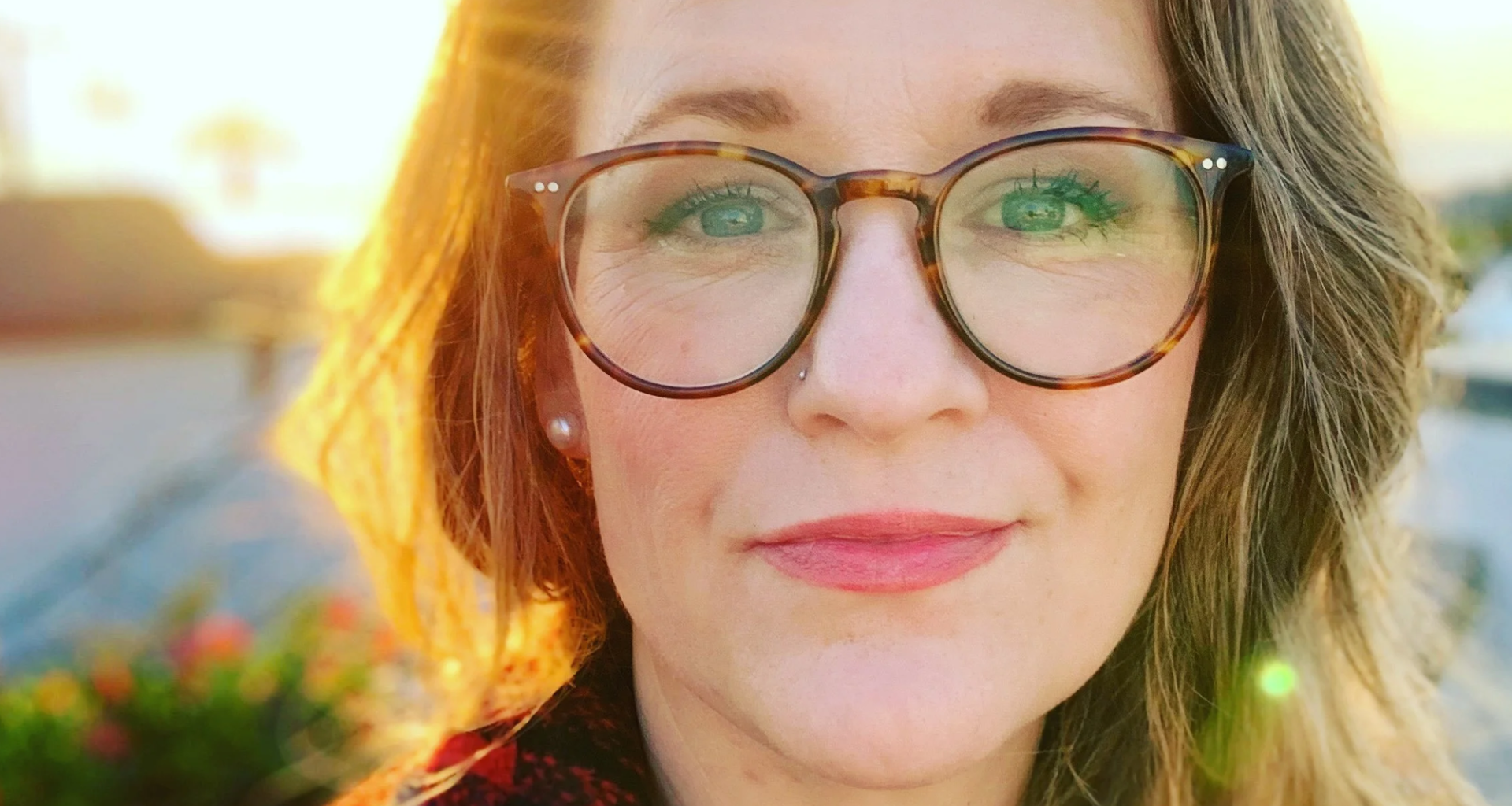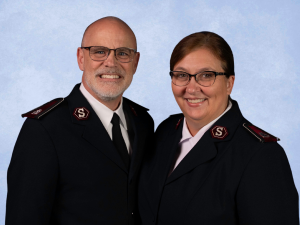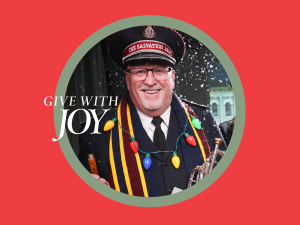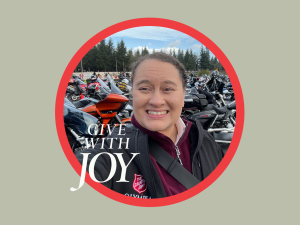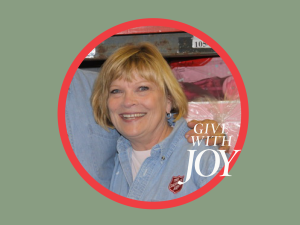This conversation tackles one of the most counterintuitive ideas you’ll hear: that the good life—the spacious, meaningful, joyful life we’re all searching for—isn’t found in limitless possibilities or endless hustle, but actually within the loving boundaries God has given us.
This conversation is part of our special “Slowing Down” series here on The Do Gooders Podcast. As summer winds down and we feel that familiar pull toward fall’s packed schedules, we’re exploring a different idea: that slowing down isn’t about doing less good in the world, but about doing good in a way that’s sustainable, joyful and rooted in the rhythms God designed for human flourishing.
Dr. Ashley Hales brings a unique perspective to this conversation. Ashley holds a Ph.D. in English literature from the University of Edinburgh and serves as Editorial Director for Print at Christianity Today. She’s also the co-founder of The Willowbrae Institute, which researches the intersection of Christianity and the common good. Plus, she’s a mom of four, a pastor’s wife and someone who has personally wrestled with the gap between our culture’s promises of unlimited freedom and the reality of human limitations.
Ashley is the author of several books, including her latest, “A Spacious Life: Trading Hustle and Hurry for the Goodness of Limits.” She makes a case that will challenge everything our achievement-oriented culture has taught us: that constraints aren’t restrictions to fight against, but guardrails that actually lead us to flourishing.
If you’ve ever felt exhausted by the pressure to do more, be more and achieve more—or if you’ve wondered whether slowing down means caring less about the important causes and people in your life—this conversation will offer you a different way forward. Ashley will help us see that embracing our God-given limits isn’t about settling for less, but about discovering the spacious life that’s been waiting for us all along.
So come along as we explore together what it means to trade our hustle and hurry for something far better: the goodness of limits.
Show highlights include:
- Why unlimited choice often leaves us overwhelmed, not free
- How God’s design for creation shows us the goodness of boundaries
- Why activists, leaders, and caregivers especially need to embrace limits
- The invitations of Sabbath, play, and delight as acts of resistance against hustle culture
- How our digital lives feed the illusion of limitlessness—and how to reset
- Why prayer reorients us from productivity to presence
- A simple practice to begin experiencing the spacious life this week
Listen and subscribe to the Do Gooders Podcast now. Below is a transcript of the episode, edited for readability. For more information on the people and ideas in the episode, see the links at the bottom of this post.
* * *
Christin Thieme: So in your new book, you really challenge what we know about the good life. You write that the spacious life is found within the confines of God’s loving limits, which can almost sound like an oxymoron to us, so can you help us understand what you mean by that?
Ashley Hales: Yeah. I think a lot of times when we think of freedom, we think of endless choice and the ability to kind of make our own path or forge our own way, and you can just even think about how it feels to go grocery shopping as a way to help illustrate this. So you show up to the grocery store, and if you didn’t know, maybe you’re trying out a new recipe or something, and so you look at this aisle that has 800 versions of a condiment or a certain, I don’t know, pasta type, and you don’t know what to choose.
When we have so many options open to us, it feels just absolutely overwhelming, and so really what we need is good guardrails and good limits, and given that we are created by a loving God who’s made order to our universe, it makes a lot of sense that actually we find real freedom when we live within those limits. And so that does mean, yes, we have to say no to certain things, or not every career option or way of life is open to us at every single moment. But as Wendell Berry said, we live the given life and not the planned, and so I’ve just taken a lot of personal comfort in trying to actually embrace my limits and not try to fight them as much as possible.
Christin Thieme: You have a Ph.D. You serve as editorial director at Christianity Today. You’re also a mom of four and a pastor’s wife. So, how did you come to realize that limits might actually be a gift rather than a restriction?
Ashley Hales: Yeah, I think we all have different ways we deal with our limits. I think you can tell just by reading some of my bio that it looks like I live pretty unlimited, and I have often tried to do too many things at the same time. One thing when my children were really small that I didn’t know, really, was this idea of seasonality, that certain seasons have certain limits and certain invitations, and I kind of wanted the best of all possible worlds in every season, which was, I guess, a very immature way of looking at the world.
And so I think often we come up against our limits, whether that’s through failure or fatigue or exhaustion or anger, and they’re kind of like warning lights on a dashboard of a car that say, “Something’s not quite right.” And so when you hit one of those warning lights, whether it’s you explode, or you’re trying to break down every limit, or maybe you turn it inward and you think about, “Gosh, I should have been able to do all of these things,” when we start treating ourselves like machines, those are good warnings to remind us that we are not meant to do everything and be everything in every possible moment, that we’re human, and then that’s a good thing.
Christin Thieme: Yeah. You write in your book that we hurry through life, militating against our limits, yet we find ourselves miserable and exhausted, so why do you think we resist those very boundaries that could bring us more peace? What is it that we just naturally fight against?
Ashley Hales: Yeah. What was interesting to me when I spent some time in the beginning chapters of the Bible, in Genesis, I realized, “Gosh, limits are right there.” They’re in Creation, that there’s day and night, that the water is separated from the land. Everywhere you go in those first two chapters, there are actual guardrails and limits and separation. And planets have orbits; they don’t just go wherever they want to go. That there’s a place and a path for all of Creation, and we are no different in that we are also created with limits.
But then when we come to Genesis 3, we see, actually, one way of thinking about sin is with that word “trespass,” which means to go beyond or to go past, to travel beyond. And so, what we’re doing … The sin is often just going past our limits. And it doesn’t mean we’re sinning when we stay up too late or something and watch Netflix instead of getting a good night’s sleep, but it does mean that often that propensity to try and either make our own way or to go past God’s good limits … Really, we can get to the root of pride in the same sort of questioning that Adam and Eve did.
And so I think it’s just a really … It’s a helpful reminder that this is how, this side of Eden, that we are all broken and we are all very keen to kind of push past our limits. Then we can think of them as an invitation to actually pressing in when things are hard, and also to connect with God and others when we really want to run or hide or fight our limits.
Christin Thieme: Even with good intentions, right?
Ashley Hales: Yeah.
Christin Thieme: Especially for those who are really passionate about doing good in the world, your ministry leaders, activists, advocates. How do you respond to that fear that embracing your limits is going to mean that you care less or that you’ll do less for these important causes?
Ashley Hales: I think that’s such a great question, because that is … Especially for folks who are passionate about justice and passionate about doing good in the world and caring for people, you can feel like you’re always on. And if you’re not always on, then who else is going to care for these people?
What has been really fun to see, whether if someone’s been in a series of just personal life struggles that will enable them to see, “Gosh, the world does not revolve around me and my activism,” or, “It doesn’t revolve around me and my care,” and God will kind of fill in the gaps, that we are welcomed into these good works, but they don’t depend on us.
And so I think some of that might bring up, “Gosh, I really need to bring someone else along with me to train up someone, because I won’t be here forever.” Even if I was a machine and endlessly capable with no limits, we will die. And so at the very least, trying to think about what sort of legacy are we leaving and how are we bringing people alongside us is one way to begin to kind of take the pressure valve off of this. Even though it can be really humble and good, we can still have this prideful sense of, “Well, if I don’t do it, it’s never going to happen.”
Christin Thieme: Yeah. You organize the book around invitations, invitations to set aside, wait, rest, delight, pay attention. Can you share one that particularly maybe resonates with you personally and more about what those invitations mean?
Ashley Hales: Yeah. Well, I think certain invitations are probably more or less naturally good or easy for us. So I think the invitation on play, I think, was a challenging one for me, because I’m used to trying to get everything done, and it never feels like there’s enough hours in the day, and you have to switch from working mom to carpool mom to ministry spouse to friend, whatever it is, in the course of a day. And it can feel like play, or even Sabbath, which is also another chapter in the book, are … We don’t really have time for it.
So for play, one thing I often will talk about this invitation to delight is this invitation to kind of find our inner child in some way, and to remember what sort of things maybe made us come alive when we were that eight to 12 years old age range, and even just trying to remember, “What is it that, in my late childhood, felt so me?” without feeling like you have all of the junior high self-introspection that can be very intense in that age range.
And I often will incorporate those in my Sabbath practices. So for me, reading has always been something that has felt particularly like home, and so reading a fun book instead of a workbook is one thing that I try to incorporate that feels like play to me. For my children, they’re very, very active, and so it might be joining them on a hike, so sometimes it gets us out of our own sorts of ruts to connect with others as another way to practice that. And what we’re saying when we do things like go for a hike or read a book that isn’t productive is that our identity isn’t tied up to what we do and what we produce, and so it’s kind of a resistance.
Christin Thieme: As someone who works in Christian media and really is engaged in the broader cultural conversation, if you will, what do you observe about how the church and those within it have bought into this, I guess, hustle culture? How can we model something different?
Ashley Hales: Yeah. I think I’m just always reminded how strange a Sunday worship service is. So it is super strange that these people from all different ages and places gather together to worship God, and they sing. People don’t sing unless you’re at a concert these days. And so, these are ways in which we can kind of reframe what it is that we’re about. And so I think when we make church, and even just Christian subcultures, all about numbers or things we can measure, we are following along with worldly metrics instead of saying, “This is an alternative space in which we’re doing something that’s totally countercultural, that really is unheard of.”
And so we can even just think, “Okay, what can I do on a Sunday morning where I am actually engaging with someone who’s different than me, or in a different age and stage? How can I welcome visitors?” Those are very practical ways in which we can try to retrain our natural propensity for numbers or outcomes that are important, but can really take our minds and hearts off of what matters.
Christin Thieme: You dig into our digital lives in the book and the lure of limitlessness there.
Ashley Hales: Yeah.
Christin Thieme: Can you share a little bit about how you navigate technology and this idea of having limits?
Ashley Hales: Yeah. I think it’s gotten worse and worse there. I wrote the book before the rise of ChatGPT and all of the AI stuff that we’re now bombarded with. But I think when we think about our digital use, it can often be a way to kind of be displaced or unplaced, that we don’t really even have to care about those around us. We can focus on our screen, whether that’s waiting in line at the grocery store or just endless scrolling.
And it’s not to say that those things are evil, but they shape how we think about the world and they shape our reactions. So I’m stressed or anxious, I’m going to just scroll. Or I’m bored and numb, so I’m going to just turn on the TV. Or I don’t like how I look or what I said to my in-person community, and so I’m just going to go ahead and get information on Instagram.
And I think that we just have to actually be aware that what we’re trying to do is escape our places. We’re trying to escape ourselves, we’re trying to escape our bodies, and that that’s not good for us, that we are people in places amongst other people. And so I think just even being aware of that, doing a digital audit, can begin to at least awaken us to the ways in which we use our screens to try to be limitless.
Christin Thieme: Yeah. Awareness is the first step, right?
Ashley Hales: Yes, yeah. Exactly. I don’t know if I’ve got it down though. I will try to-
Christin Thieme: It’s hard.
Ashley Hales: … sometimes take off all of the apps from my phone. And it’s the phone, mainly, that becomes an easier slip into those sort of digital everywhere-isms.
Christin Thieme: Always with you. It’s so easy to just … Like you said, waiting in line at the store, it’s that boredom. It’s like an instant draw.
Ashley Hales: Yep.
Christin Thieme: The subtitle of your book talks about trading hustle and hurry. For somebody who maybe feels trapped in that, which I think would be a lot of us, what’s a small trade somebody could make this week to try to get out of that?
Ashley Hales: Yeah. Maybe it is your digital obsession. I think really what I love when you say the idea of trade is that it’s not that we’re just saying no to everything, but that we’re trying to say no to something for something better. So I would say the first thing might be to ask … Let’s say you want to begin to practice Sabbath, and so what would be something that would be beautiful about trying to actually carve out a day without, maybe, technology or work? So maybe that means you’re doing your cooking ahead of time, or maybe you love cooking and so you’re finding, really, a new recipe that you’re really excited to try.
So trying to almost hack the lure, the pull, and not just the push away from something, I think, is always great, but it’s not like you can drop all of your commitments for any given week. But maybe it’s getting to bed earlier so you get a good night’s sleep, and you say, “I’m worth eight hours of sleep.” Maybe it’s leaving the dishes in the sink so that you can sleep or have a conversation over the family dinner table. Maybe it’s putting your phones away during the family dinner table time and just trying to extend that time. Maybe it’s lighting candles around your table and so that you’re actually thinking about connection instead of, “Okay, we’ve got 20 minutes to move on to our next event.”
But I think there’s just probably a few things that could infuse some slower pace that then begins to go, “Oh, that was really nice. I want to try to figure out how to make more room for that.”
Christin Thieme: Yeah. You end many of the chapters with these beautiful prayers. How does prayer specifically help us to embrace our limitations?
Ashley Hales: Prayer is not … It doesn’t feel productive. We’re like, “Okay, I’m praying, and I don’t know …” It’s not like a math equation. We don’t know how God will answer our prayers. Sometimes, in different seasons, we’re like, “Is God even there?” Even practicing various forms of contemplative prayer or listening prayer can be really scary, because they’re frightening, and it’s silent, and we’re never used to silence.
And I think the reminder is that prayer can really be a lifeline for living a more unhurried life. And so that is just another daily practice that we can say, “Okay, I know that everything around me says that what matters most is what I produce, or how quickly I’m moving through the world, or what I can accomplish, but when I connect with God in prayer, I get to be a kid again. I get to just experience that God who is overt, in charge of the cosmos, who gave those orbits to those planets, also cares deeply about the things in my heart and our world.”
And so what better thing to do than to bring those concerns, and our challenges, and even our fears about, “God, are you even there?” You can take it to God in prayer, just to remind ourselves that we’re not alone and we don’t have to create our identities in what we produce.
Christin Thieme: You also, with your husband, co-authored another book called A Fruitful Life about the Sermon on the Mount. How do Jesus’ teachings in that sermon specifically inform this idea of living spaciously?
Ashley Hales: Yeah. I think when we look at the Sermon on the Mount, we can think about it as, “Oh gosh, these are lots of rules, and what am I supposed to do with them? Am I supposed to actually …” I think sometimes we just give ourselves a pass, and, “We don’t really have to pray for our enemies, right?” or, “We really don’t have to turn the other cheek, right?” What does it mean to actually let my yes be yes, my no be no, and does anger really mean all those things?
And so I think we can kind of just be like, “How about I do some mental jujitsu and don’t actually take this Sermon on the Mount seriously?” Instead of saying, “Gosh, sometimes God’s limits look really small.” Like, “Oh my gosh, there’s no way I’m going to actually fit between these commands He said.”
And so I do think that some of our limits, when we recognize them, show us that, “Gosh, I’m worse off than I thought I was.” And like prayer, we then get to be driven to the foot of the cross, and just remember that thankfully it’s not up to us to hit all of these amazing commands. It’s not about hustle and hurry. It’s actually about trusting that Jesus has already fulfilled everything He commands in the Sermon on the Mount on our behalf. So it drives us to Him, which I think our limits do too, and it puts us in a posture of dependence and humility instead of pride as well.
Christin Thieme: If somebody listening could walk away with one practical way to begin experiencing the goodness of limits, what would you want them to try?
Ashley Hales: Yeah. I would say try a very physical-embodied practice. Maybe you take a prayer walk. Let’s just try that one as an example. I think I actually have something in both books, “A Spacious Life” and “A Fruitful Life,” where we talk about some practices that might help orient you towards living in light of the good life that Jesus talks about.
So one thing, yeah, might be a prayer walk, where you leave your phone at home, so you’re not tracking your steps and so it’s not productive, and you simply are noticing. Take half of your time to notice the natural world and to invite Jesus to be with you through the power of the Spirit as you walk.
And then maybe on the way back, your halfway point, you begin to just say those things out loud or in your heart, depending on how busy it is, people are looking at you funny. But you begin to kind of pray back what you’ve noticed to God, and I think that’s one way that, one, it gets our whole selves activated. It helps us pay attention to things that aren’t personal, necessarily, so we don’t become so inward-focused about, “Oh gosh, here’s my laundry list of things I need God to do for me.” So it helps us notice, and then it also helps give us a posture of just slowing down, breathing, and connecting with God, who is Creator of all things.
So that might be an easy … Just give yourself 20 minutes. Do a little prayer walk. It’s a great way to begin to decompress and then disconnect from the hustle that we’re so naturally prone to.
Additional resources:
- If you are one of the hopefuls, get on the list for the Do Good Digest, our free 3-minute weekly email newsletter used by more than 20,000 hopefuls like you for a quick pick-me-up in a busy day.
- If you are enjoying this show and want to support it, leave a rating and review wherever you listen to help new listeners hit play for the first time with more confidence.
- If you want to help The Salvation Army serve more than 27 million Americans in need each year, give today. Your gift of money, goods or time helps The Salvation Army do good all year in your community.
Listen and subscribe to the Do Gooders Podcast now.








